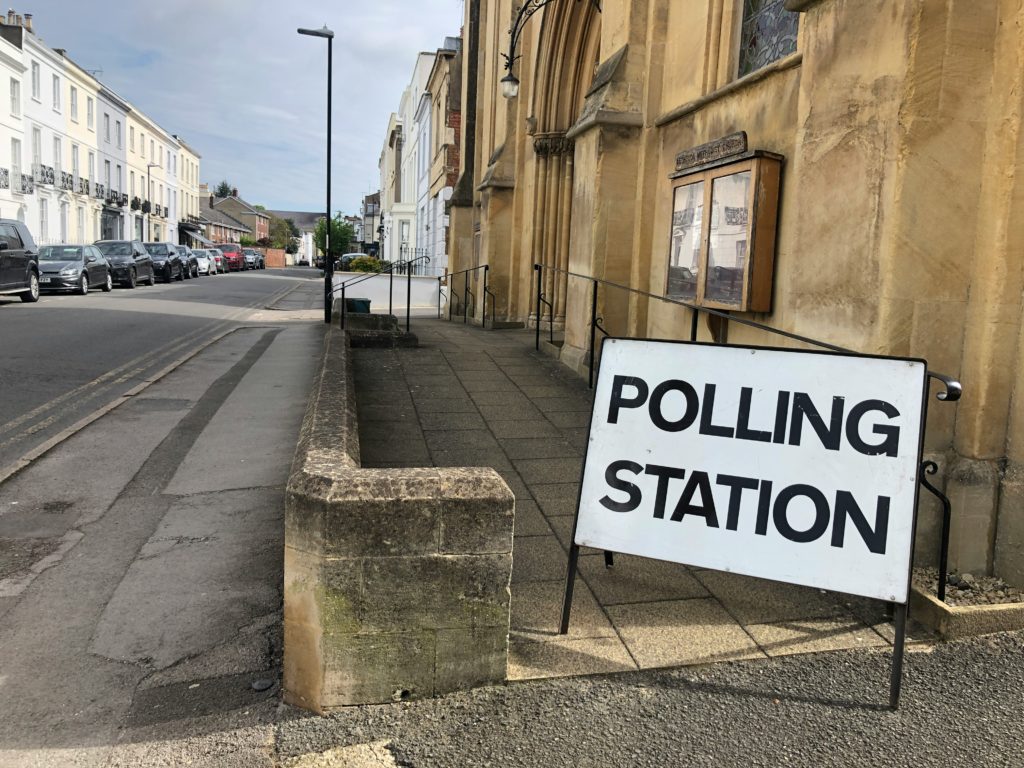
By Professor John R. Bryson
Professor of Enterprise and Economic Geography, The Department of Strategy and International Business, Birmingham Business School
Are you as tired of this election as I am? This question reminds me of Samuel Johnson’s statement that when one is tired of London, one is tired of life. But what makes UK elections fatiguing? For me there are two processes at work here that highlight that the UK political system is broken.
On the one hand, during an election political parties, and their selected candidates and representatives, engage in a continual process of election caterwauling. In fact, caterwauling has become a defining feature of UK politics in which politicians make shrill howling or wailing noises as they try to present themselves as individuals who can lead this country into a better future.
Distortion is central to election caterwauling with all political parties creating their own dodgy dossiers and claims. We have had the Conservatives claiming that Labour will increase taxes by £2,000 per household and then Labour’s strange claim that the Conservatives’ plans will increase homeowners’ mortgages by £4,800. Really?! Both, these figures are distortions and raise questions regarding the capabilities of our politicians and their parties.
On the other hand, there is a strange paradox at the centre of all political systems. A politician is someone who has the capability to be elected in a democracy, or to capture a position of power in non-democratic forms of governance. This does not mean that someone who has been elected has the competence or capability to make the types of decisions required to govern a country. Never assume that someone who has been elected has the skills, understanding or even vision required to engage in effective governance.
When I was a child, politically I was influenced by my parents. Now, I take a different approach based on who one can trust to support effective governance. I have never been a member of a political party and support no political party. Moreover, I have given up voting for political parties. This raises an interesting question. Should one vote for a political party or for an individual candidate? To me the answer to this question is clear – always vote for individuals and ignore their party affiliations. This distinction between individual versus party is important. It is easier to assess an individual’s competency based on what they have delivered compared to trusting a group. The problem with a group is that group dynamics alter rapidly and there is no certainty regarding how that group will develop. All political parties change in response to group dynamics based on who has the most influence.
There are three implications that come from this voting approach. First, I can ignore all the election caterwauling as this is irrelevant. I do not need to watch or even listen to the party leaders taking part in live caterwauling displays on prime-time television. All this is irrelevant. Second, I can ignore the election manifestos. These documents function as a form of nested bribes that are constructed to influence voter decisions. UK election manifestos are mostly meaningless as they are packed with distorted analysis and promises that can never be fulfilled. One of my rules in life is to try to never be involved in a decision which results in a promise that can never be delivered. Thus, with these types of promises failure occurs at the very moment such a promise is made. The party-political manifestos are saturated with such promises. For example, Labour’s manifesto promises to deliver economic stability, but no government can deliver on such a promise.
Second, focusing on the individual narrows the voter decision-making process. There are some important indicators here. Does the candidate live in the constituency and how long have they lived in this area? This is critical as our MPs are meant to understand and represent the interests of those living in their constituency. Is the candidate highly visible locally and more importantly known for having made positive interventions that enhance the local area, and this includes enabling or facilitating better outcomes for people? Candidates should have local reputations for trying to engage in effective place-building activities through, for example, working with and supporting social enterprises and community groups.
Does the candidate have the skills and experiences that would suggest that they can really work to represent their constituency and to support and enable effective and sustainable place-building?
Third, focusing on the individual rather than the party, and the contributions they make to place-building and community enhancement at a local level, returns the UK political process to its foundations. Our MPs are meant to represent the interests of a specific place and its inhabitants in national political debates. Tensions often exist between the interests of a political party and those of a place and our MPs need to be able to navigate such tensions.
Are you like me and tired not of democracy but of the election caterwauling that has become a feature of the UK political process? If this is the case, then consider ignoring the distorted claims, accusations and promises that are central to this caterwauling process and instead focus on the qualities of the individual candidates. Ultimately, it is individuals that matter as it is their individual qualities that will ensure that they will effectively, proactively, and sensitively represent the interests of their constituents both locally and nationally.
- Find out more about Professor John Bryson
- Back to Social Sciences Birmingham
The views and opinions expressed in this article are those of the author and do not necessarily reflect the official policy or position of the University of Birmingham.
